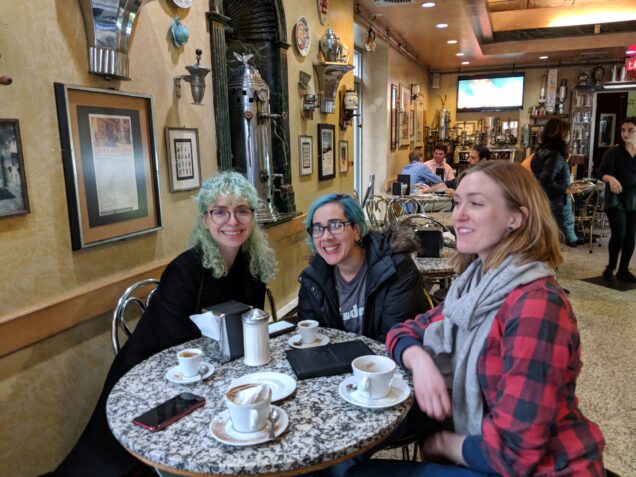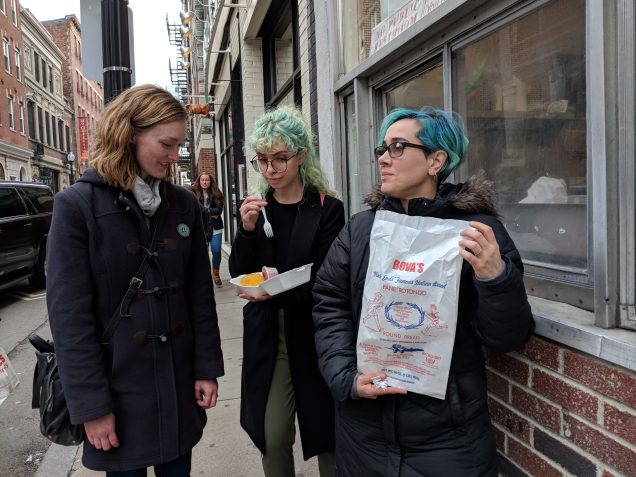Course Spotlight: Food and Public History
Got Food? Got History? Go Public.
Food and Public History (ML623), Spring 2020

In Food and Public History (4 cr), we will examine interpretive foodways programs from museums, living history museums, folklore/folklife programs, as well as culinary tourism offerings, “historical” food festivals, and food tours. Our goal is to compare different approaches to teaching the public about history or cultural heritage using food. How do we best engage the public? How do we demonstrate the relevance of food as both a historical subject and as a topic of interest today? Through different approaches to public history, can we connect our audience to issues that are so critical today—the future of food movements, for example, or the preservation and understanding of cultural difference? How can we successfully engage the public, whether through displays, tours, or interactive/sensorial experience?
 Students will have the opportunity to hear from several experts in historical interpretation, public history, and food history programs. We also will be taking field trips to area museums and food history walking tours in Boston. Last year students took a walking tour of Jewish historical sites in Chelsea, went on the Bites of Boston tour of Chinatown, and had behind-the-scenes tours of Plimoth Plantation and Old Sturbridge Village. These visits served as case studies, allowing students will examine the process of creating mission statements, interpretive goals, and entrepreneurial offerings, as well as different methods of communicating with the public. Students will have similar opportunities this spring.
Students will have the opportunity to hear from several experts in historical interpretation, public history, and food history programs. We also will be taking field trips to area museums and food history walking tours in Boston. Last year students took a walking tour of Jewish historical sites in Chelsea, went on the Bites of Boston tour of Chinatown, and had behind-the-scenes tours of Plimoth Plantation and Old Sturbridge Village. These visits served as case studies, allowing students will examine the process of creating mission statements, interpretive goals, and entrepreneurial offerings, as well as different methods of communicating with the public. Students will have similar opportunities this spring.
This is a project-based course involving experiential and hands-on learning opportunities. Student projects will include creatinug proposals for food history tours in the North End, for example. Student also will participate in a semester-long group project, entitled Home Cooks in the Merrimack Valley. The project will involve background research, updating the project proposal, resubmitting a script and proposal for the Boston University Institutional Review Board (IRB), and fieldwork (interviewing home cooks from a range of cultural and ethnic backgrounds), transcribing those interviews, and then creating or adding to an online exhibit.
Hope you will join us!
For more information, contact kmetheny@bu.edu.
MET ML623, Food and Public History, will meet on Wednesday evenings from 6 to 8:45 PM, starting on January 22. Non-degree students who would like to take the class may register here.